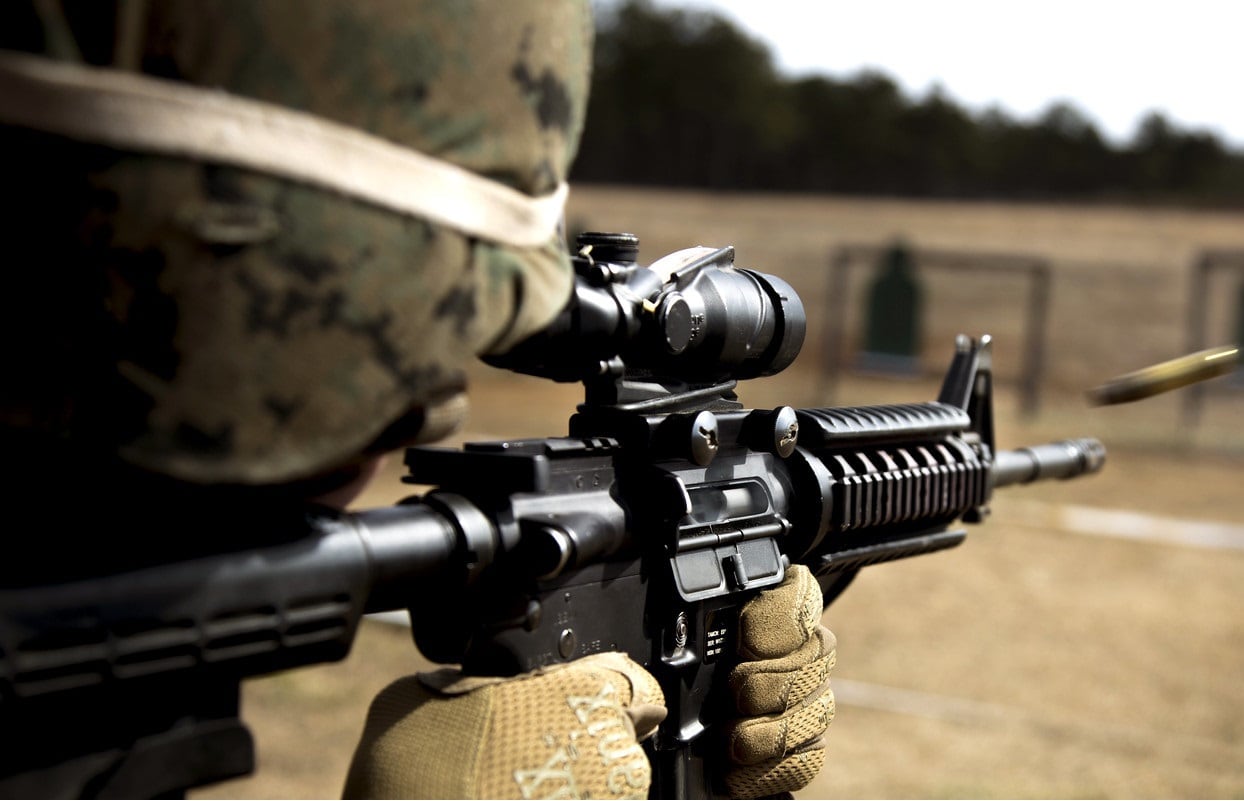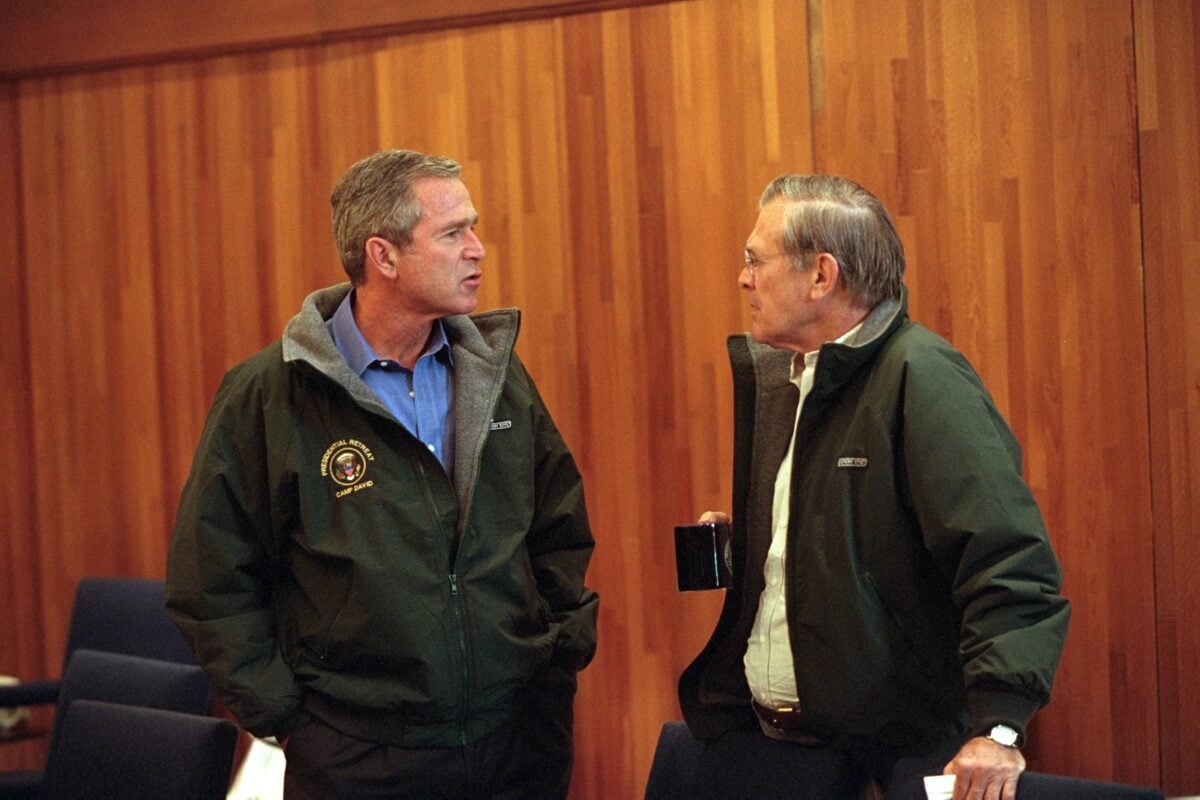Robert Farley

The question is not as absurd as it sounds. Popular support for military retribution against Al Qaeda following the 9/11 attacks was high, but this retribution did not need to take the form of a campaign for regime change. Indeed, some senior officials in the Bush administration were notably unenthusiastic about invading Afghanistan, seeing it as a strategic backwater and far too remote to make an effective demonstration of American military might. What if the United States had taken a different path?
The Counter-Terrorism Mission
It is almost certainly unthinkable that the United States would not have responded militarily in some fashion to the 9/11 attacks, but the specific form of intervention was not pre-ordained. Instead, the US could have undertaken a combination of punishment-style attacks against Taliban targets designed to cause pain to the regime, while at the same time launching counter-terrorism operations intended to capture or kill as much of Al Qaeda as possible. The Taliban had no obvious means of resisting the United States military or preventing it from accessing whatever part of Afghanistan it wanted to attack in 2001. The US could have landed and supported substantial forces without Taliban permission, similar to how the US has operated in Syria and Somalia.
An early focus on counter-terrorism might have paid dividends. For example, had it been unnecessary to placate Afghan allies, the US might have pursued a more aggressive strategy against Bin Laden and Al Qaeda at Tora Bora in December 2001. Had Bin Laden been captured or killed in Afghanistan in 2001 as part of a counter-insurgency operation, the justification for long-term occupation of the country and support of its governing institutions would have lacked political justification. This campaign might have been combined with an attempt at outreach to elements of the Taliban, although of course, the prospect of coming to a lasting agreement with the group was always elusive. The Taliban would likely have its hands full with other problems, however.
The Civil War Continues
Afghanistan was not at peace on September 11, 2001. The Northern Alliance posed such a threat to the Taliban that Al Qaeda took the trouble to conduct a suicide bombing against Ahmad Shah Massoud two days before the Twin Towers were destroyed. There is little doubt that the Northern Alliance would have viewed intervention as an opportunity to step up their campaigns against the Taliban. Its advocates would have found a ready audience for expanding the war in Washington, putting pressure on the administration to expand the aims of the war to the destruction of the Taliban. The US could have tried to restrain the Northern Alliance and redirect its efforts against Al Qaeda, but like the efforts during the Syrian Civil War to force proxies to engage ISIS instead of the Syrian government, prospects of success would have been grim.
Thus, Afghanistan would not have enjoyed peace even in the absence of a full US invasion. The war would have involved different actors and it would have played out much differently, but in all likelihood, US intervention would have reignited the civil war that smoldered throughout the late 1990s. Pakistan would have remained intimately involved in this conflict, supporting its Taliban clients against the Northern Alliance, but it is possible that the US-Pakistani alliance would not have a taken a turn for the worse, given that Pakistan’s core ambitions for Afghanistan would have remained secure. The Taliban probably would have won this war, but only after years of fighting and continued destruction.

President George W. Bush talks with Secretary of Defense Donald Rumsfeld Saturday, Sept. 15, 2001, during a break from a National Security Council meeting at Camp David in Thurmont, Md. Photo by Eric Draper, Courtesy of the George W. Bush Presidential Library
The Iraq Problem
The question of Iraq looms over any Afghanistan counter-factual. Even if the Bush administration had decided to limit itself to a counter-terrorism mission in Afghanistan, it would still probably have invaded Iraq. Senior administration policymakers believed that Iraq occupied a far more important strategic location and that the destruction of Hussein’s regime was the hinge upon which a Middle East revolution would swing. Ignoring the Taliban would simply have freed up greater resources and attention for invading Iraq, which turned out to be a far worse disaster in terms of people killed, treasure burned, and reputation burned. This probably would not have had much of an impact on the course of either the civil war or the counter-terrorism operations in Afghanistan, however.
What If?
The endgame for Afghanistan looks familiar in this scenario. The Taliban maintains control of Kabul, and Afghanistan avoids everything, good and bad, that has happened in the last 20 years. Both the good and bad are important to keep in mind, because the US occupation transformed the country and the lives of millions of men and women. In the long arc of Afghan history, we don’t yet have a sense of the impact of the American period. The Soviet occupation lasted half as long, but had a significant impact on the functioning of Afghan society. It is possible that America’s occupation of Afghanistan will have some enduring effects, and hopeful that some of them, at least, will be remembered in a positive light.
No comments:
Post a Comment